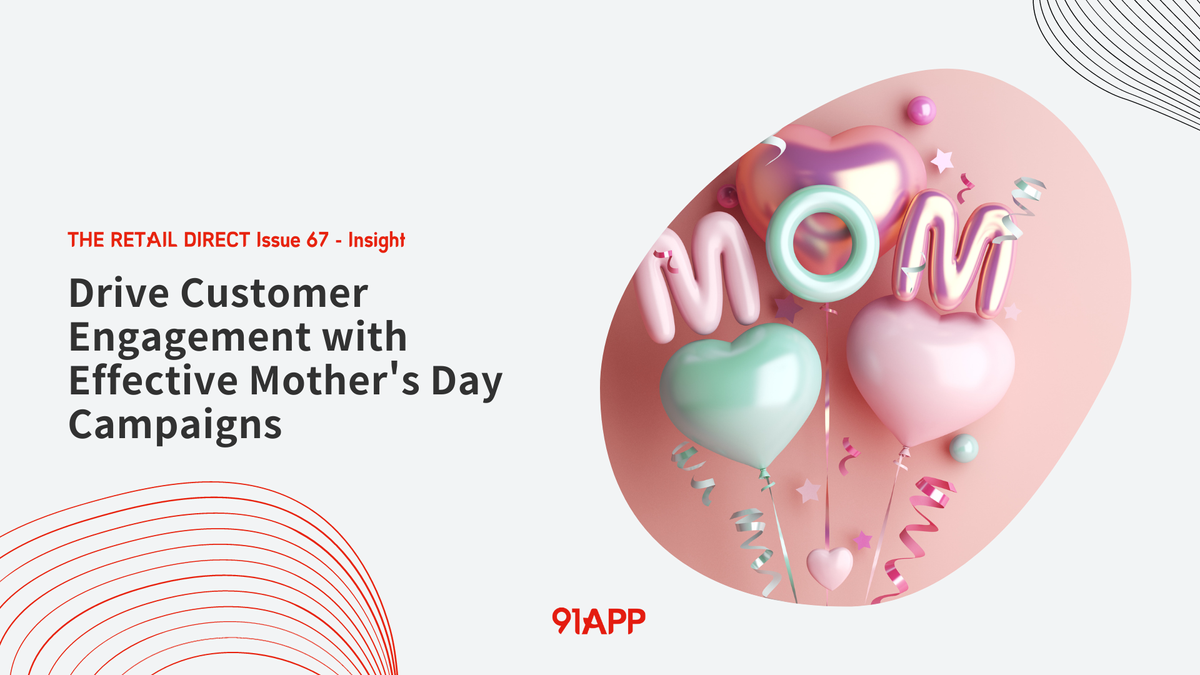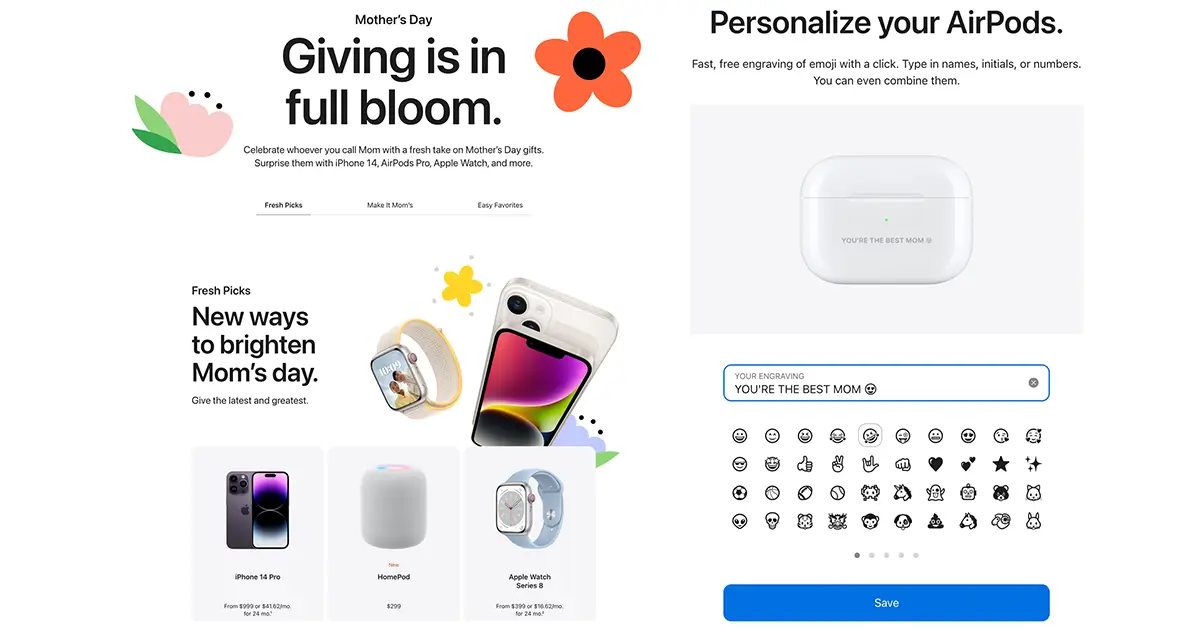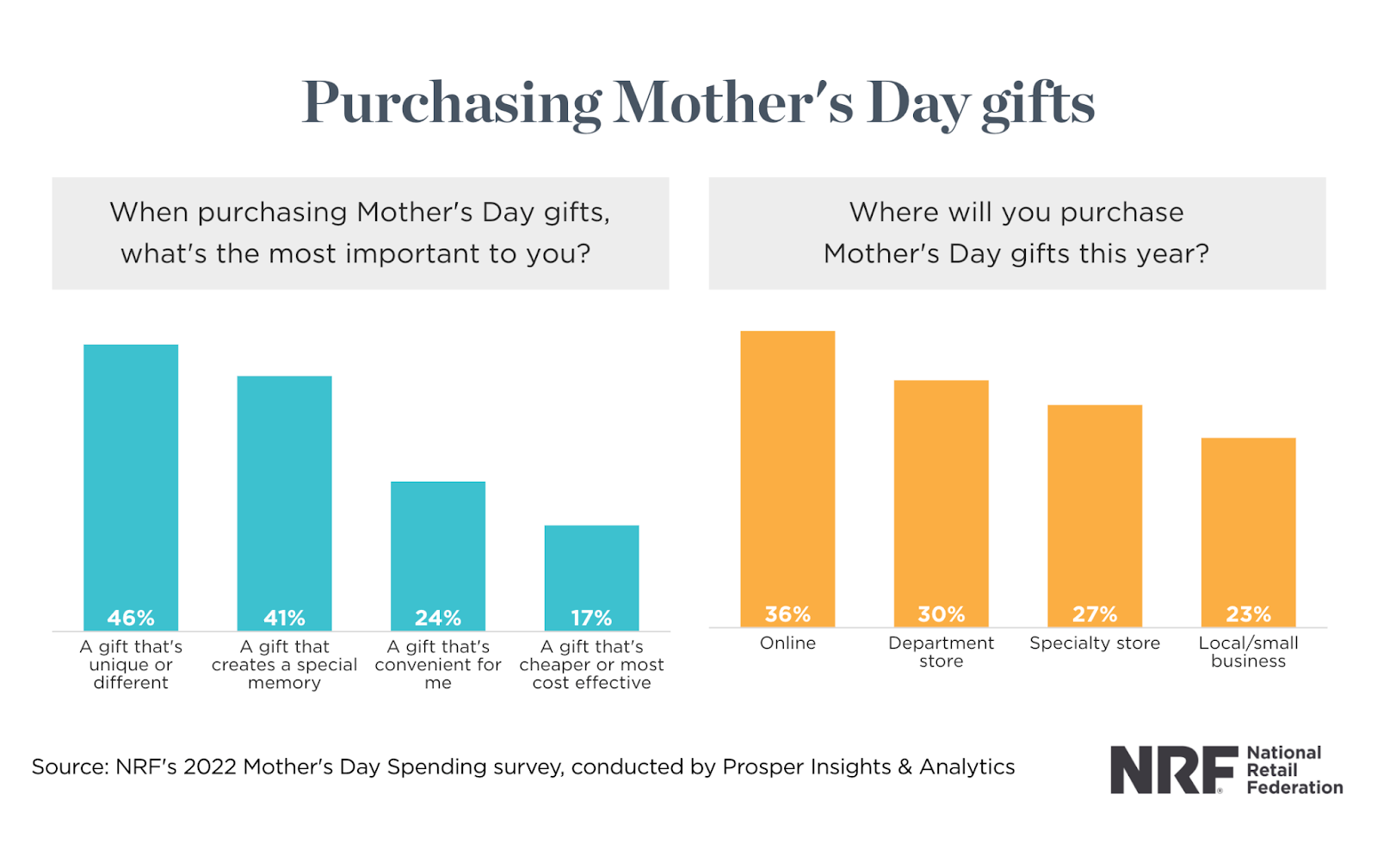TRD Issue 67 - Insight: Drive Customer Engagement with Effective Mother's Day Campaigns
Explore Mother's Day marketing strategies for D2C brands to boost sales and enhance customer engagement.

Hello subscribers,
Mother's Day represents a significant opportunity for D2C (direct-to-consumer) brands to connect deeply with their audience, drive sales, and enhance brand loyalty.
An effective Mother's Day campaign's essence is celebrating mothers and understanding the evolving consumer behaviors and preferences.
In this week's Insight, we explore effective strategies for D2C brands to create impactful campaigns for special occasions.
The Retail Direct
About 91APP
Founded in 2013, 91APP is the premier OMO (online-merge-offline) SaaS company, providing one-stop omnichannel retail solutions in Taiwan, Hong Kong, and Malaysia. It offers advanced Commerce Solutions and Marketing Solutions that enable retail brands to penetrate the D2C (Direct-to-Consumer) e-commerce market and drive operational benefits to their full potential. In 2021, 91APP became the first SaaS company to be listed in Taiwan and has been named one of Taiwan's "NEXT BIG" companies by Startup Island TAIWAN.
For more information about 91APP (TWO: 6741), visit www.91app.com.
Introduction
Creating a successful Mother's Day marketing campaign can significantly enhance your marketing strategy, achieving KPIs like brand awareness, acquiring new customers, and increasing repeat purchases.
Developing a Mother's Day campaign that resonates with your target audience in 2024 is crucial regardless of your end goal. You can establish a lasting impression that surpasses a seasonal promotion by guaranteeing that your campaign captures their attention and aligns with their needs and desires.
Consumer Insights and Behavioral Trends
Rising Demand for Personalized and Experience Gifts
In recent years, personalized gifts have gained traction among consumers seeking meaningful and bespoke presents. A report by Mintel indicates that 26% of shoppers are interested in gifts that can be personalized. Additionally, experience gifts, such as tickets to events or spa days, are becoming increasingly popular, reflecting a shift towards valuing experiences over material goods.
Your brand can offer personalized touches such as handwritten cards, name or emoji engraving, custom packaging, and event collaborations to reward customers who purchase a specific product or reach a certain spending amount.

Price Sensitivity and the Appeal of Promotions
The economic landscape has made consumers more price-conscious.
According to GlobalData’s report in the UK, Over 60% of consumers report feeling financially strained compared to previous years, prompting them to seek out the best value deals. Highlighting discounts and promotional offers can thus play a crucial role in attracting buyers during Mother's Day.
In another survey by PYMNTS Intelligence, there was a 6.8% increase in retail purchases towards the end of 2023 due to low inflation rates. However, consumer behavior has shifted post-holidays, with 63% cutting back due to price hikes and over half seeking cheaper retailers. This highlights a cautious approach, as shoppers prioritize affordability, as shown by the significant role of price in purchasing decisions.
The Shift Towards Online Shopping
E-commerce continues dominating retail, with 36% of Mother's Day purchases made online, according to a survey in 2022 by NRF. This trend underscores D2C brands' importance in optimizing their digital platforms, ensuring a seamless shopping experience that can handle increased holiday traffic.

Marketing Strategies for Engagement
Leverage Customer-Centric Storytelling
Incorporating real customer stories can significantly enhance emotional engagement. For instance, showcasing how a product has impacted a customer's life can create relatable content that resonates more deeply with potential buyers.
Emphasize Sustainability
With growing consumer interest in sustainable practices, D2C brands should highlight their commitment to environmental responsibility. This can be a compelling differentiator, particularly for younger, more environmentally aware demographics.
Utilize Gamification
Introducing elements of gamification into marketing campaigns can boost engagement and interaction. For example, interactive contests on social media or quizzes offering Mother's Day discounts or gifts can encourage participation and spread word-of-mouth.
Campaign Execution Ideas
Creating Personalized Campaigns
Personalized gift guides based on consumer data can help customers easily find the perfect gift. Utilizing AI-driven recommendations can also enhance this customized shopping experience.
Capitalizing on Mobile and Social Media Platforms
With a significant portion of consumers engaging on mobile and social media, D2C brands should focus on these platforms for campaign deployment. Tailored ads, short-form videos, and interactive AR filters can effectively capture the target audience's attention.
Collaborations and Partnerships
Partnering with influencers or other brands can extend reach and add credibility to your campaign. Collaborative promotions or co-branded gifts can attract a wider audience and generate buzz around your offerings.
Conclusion
Mother's Day offers a golden opportunity for D2C brands to showcase their appreciation for mothers while boosting their market presence. By tapping into detailed consumer insights and employing creative, tailored marketing strategies, brands can meet and exceed their sales objectives and build lasting customer relationships. Embracing flexibility in campaign strategies and keeping a pulse on consumer trends will be critical to successfully navigating the nuances of Mother's Day marketing.
This strategic approach aims to maximize Mother's Day's emotional and commercial potential, ensuring that campaigns are seen and felt, leading to deeper customer engagement and increased brand loyalty.





Comments ()